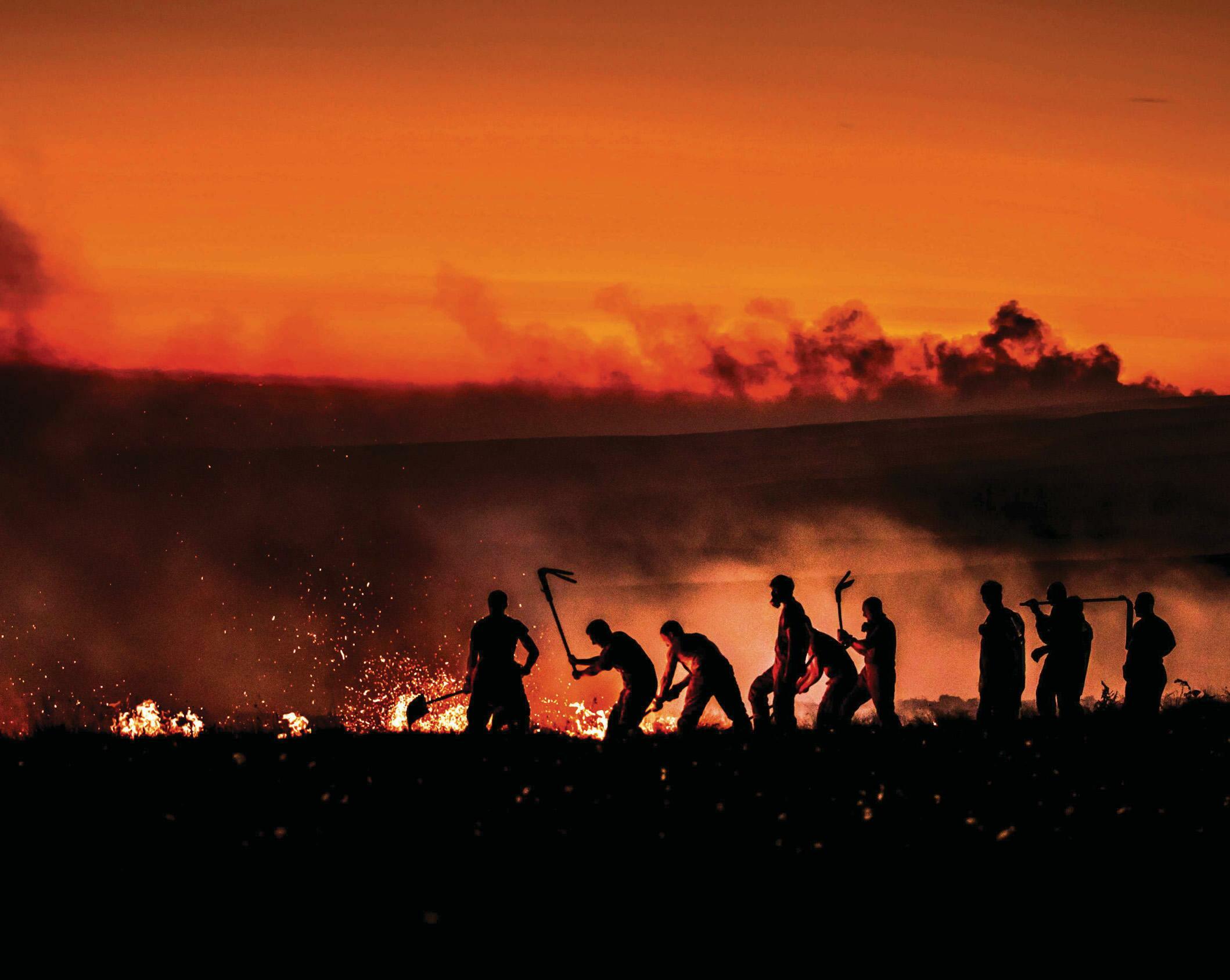
THE RECENT WILDFIRE events in Europe, Canada and Hawaii - and, prior to that, other US states and Australia - may dominate the headlines, yet wildfire is an issue faced by the UK, too.
Before the soggy affair that was July and August, a spell of hot weather meant wildfires were very much on our national agenda. In June, firefighters tackled a wildfire the size of 300 football pitches in woodland on Rhigos Mountain in South Wales. Around the same time, a nearly 2km-long patch of moor and woodland just south of Inverness went up in flames. A few days later, yet another wildfire was burning on Marsden Moor in West Yorkshire, the eighth in the area since February.
These are just a few of the wildfire events that have taken place in this country this summer, and there will be more in summers to come, each the result of action by humans, whether careless or, more likely, deliberate. A smouldering cigarette butt tossed into the undergrowth. A spark from a barbecue. An act of arson motivated by who knows what.
There are places in the world where wildfire is beneficial to ecosystems. In the boreal forests of Russia and Canada, for example, or the Australian bush, where lightning is a common source of ignition, wildfire has historically been part of a regular cycle of destruction and renewal, critical when it comes to maintaining biodiversity in a given environment. In the UK, however, where we have no so-called 'natural ignitions' from lightning, it's a different story.
This story is from the October 2023 edition of BBC Wildlife.
Start your 7-day Magzter GOLD free trial to access thousands of curated premium stories, and 9,000+ magazines and newspapers.
Already a subscriber ? Sign In
This story is from the October 2023 edition of BBC Wildlife.
Start your 7-day Magzter GOLD free trial to access thousands of curated premium stories, and 9,000+ magazines and newspapers.
Already a subscriber? Sign In

Jump Around - Bagheera Kiplingi - The acrobatic spider with a predilection for veggie food
Spiders eat flies, right? everyone knows that the 45,000 or so spiders in the world are all obligate carnivores, more or less – eating other animals, mainly invertebrates. Nature, however, loves an exception, and one particular spider missed out on that ecological memo. It goes by the wonderful scientific name of Bagheera kiplingi, and its claim to fame is that its diet is – at least mostly – vegetarian.

Female of the Species - Zebras - A strong sisterhood is key to staying safe
Zebras are masters of confusion. Their collective noun is ‘a dazzle’, which is fitting since their bodies and behaviour have been surprising scientists for centuries.

See It, Save It? - Wildlife tourism can be a powerful ally in protecting nature - but it can also harm it. We weigh up the pros and cons.
The sums of wildlife travel aren’t as simple as more tourists equals happier nature. How much did my visit really contribute to the conservation of Lady Liuwa and her habitat – and was that outweighed by carbon emissions from my flights? Did my presence disturb the animals’ natural behaviour more than it reduced the threat of poaching or benefited local communities?The question of whether wildlife travel is, on balance, good for wildlife is a complex one – and there’s no simple answer.

Can Your Really Offset Emissions? - Planning an overseas wildlife-watching trip entails facing some inconvenient truths
Imagine (or maybe you don't need to) that you hanker after the safari trip of a lifetime in sub-Saharan Africa. A 17-day tour beginning at the iconic Victoria Falls, passing through Zimbabwe, Zambia, Malawi and Tanzania, taking in some of the continent’s most wildlife-rich national parks, and ending on the lush island of Zanzibar.

Metamorphosis: a life-changing event
WITH EVOLUTIONARY BIOLOGIST JV CHAMARY

New series for BBC One: Asia
Settle in this autumn for a new natural-history extravaganza on BBC One and iPlayer: the longawaited Asia, presented by Sir David Attenborough.

Loss of Antarctic sea ice could impact seabird food supply
Albatrosses and petrels may be forced to fly further to feed

Tarsiers in trouble
Urgent action is needed to ensure survival of the Yoda-like primate

SNAP-CHAT
Chien Lee on shrew loos, rogue drones and being rained out of bed

VISIONS OF NATURE
The winners of the Wildlife Artist of the Year competition 2024, from David Shepherd Wildlife Foundation